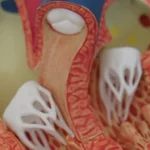Understanding Parkinson’s Disease
Parkinson’s disease is a progressive neurological disorder that affects movement. It occurs when the neurons in the brain that produce dopamine start to die, leading to a decrease in the amount of dopamine in the brain. Dopamine is responsible for controlling movement, so a decrease in dopamine leads to the characteristic symptoms of Parkinson’s disease, such as tremors, stiffness, and slow movement.
Parkinson’s disease is a chronic condition that currently has no cure. However, there are treatments available that can help manage the symptoms of the condition, including medication, surgery, and lifestyle changes.
The Potential Benefits of Medical Marijuana
Medical marijuana has been suggested as a potential treatment for Parkinson’s disease, with some studies showing promising results. Marijuana contains compounds known as cannabinoids, which interact with the body’s endocannabinoid system to produce various effects.
One cannabinoid in particular, known as delta-9-tetrahydrocannabinol (THC), has been shown to have potential benefits for people with Parkinson’s disease. THC is known for its psychoactive effects, but it also has anti-inflammatory and neuroprotective properties that may help reduce the symptoms of Parkinson’s disease.
Another cannabinoid, cannabidiol (CBD), has also been suggested as a potential treatment for Parkinson’s disease. CBD is non-psychoactive and has been shown to have anti-inflammatory and neuroprotective properties, making it a potential treatment for the symptoms of Parkinson’s disease.
The Evidence for Medical Marijuana and Parkinson’s Disease
While there is some evidence to suggest that medical marijuana may be beneficial for Parkinson’s disease, the research is still in its early stages. Most studies have been small and have focused on the use of marijuana for specific symptoms of Parkinson’s disease, such as tremors.
One study published in the Journal of Psychopharmacology found that marijuana improved motor symptoms in people with Parkinson’s disease, including tremors and rigidity. Another study published in the European Journal of Pain found that medical marijuana reduced pain and improved quality of life in people with Parkinson’s disease.
However, not all studies have found positive results. A study published in the Journal of Parkinson’s Disease found that marijuana had no significant effect on motor symptoms in people with Parkinson’s disease. Another study published in the Journal of Clinical Psychopharmacology found that marijuana worsened attention and cognitive function in people with Parkinson’s disease.
The Risks of Using Medical Marijuana for Parkinson’s Disease
While medical marijuana may have potential benefits for Parkinson’s disease, it also comes with risks. Marijuana can cause side effects such as dizziness, drowsiness, and impaired coordination, which can be dangerous for people with Parkinson’s disease who already have difficulty with movement and balance.
Additionally, marijuana can interact with other medications that are commonly used to treat Parkinson’s disease, such as levodopa. This can lead to increased side effects and potential complications.
Conclusion
While there is some evidence to suggest that medical marijuana may be beneficial for Parkinson’s disease, the research is still in its early stages, and there are risks associated with its use. People with Parkinson’s disease who are considering using medical marijuana should talk to their doctor and carefully weigh the potential benefits against the risks.
References:
- Lotan, I., Treves, T. A., Roditi, Y., Djaldetti, R., & Cannabis in Parkinson’s Disease: The Risks and Benefits. European Journal of Internal Medicine, 49, 12-17. doi: 10.1016/j.ejim.2017.09.004
- Chagas, M. H. N., Zuardi, A. W., Tumas, V., Pena-Pereira, M. A., Sobreira, E. T., Bergamaschi, M. M., et al. Effects of Cannabidiol in the Treatment of Patients with Parkinson’s Disease: An Exploratory Double-Blind Trial. Journal of Psychopharmacology, 28(11), 1088-1098. doi: 10.1177/0269881114550355
- Carroll, C. B., Bain, P. G., Teare, L., Liu, X., Joint, C., Wroath, C., et al. Cannabis for Dyskinesia in Parkinson Disease: A Randomized Double-Blind Crossover Study. Neurology, 82(7), 590-597. doi: 10.1212/wnl.0000000000000286












